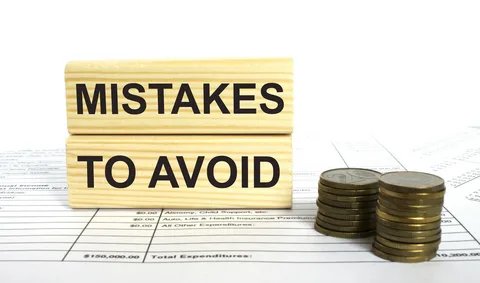How to Avoid Emotional Investing Mistakes
You need to do more than study charts, numbers, or economic trends when you invest. Emotions have a big influence on investment decisions. Fear, greed, excitement, panic, and regret can affect the timing of our buying and selling actions. Emotional investing is the result of making decisions with emotions instead of logic. Typically, it leads individuals to pick financial options that don’t support their plans.
Noticing this habit is the beginning of taking steps to prevent bad financial results. Commonly, emotional decisions prompt people to change their strategy when faced with even the slightest change. Emotional choices won’t help you maintain a good portfolio even if you choose solid assets.
The Psychology Behind Investment Decisions
Many investors act irrationally because of what behavioral psychology explains about stressful situations. The brain tends to be on high alert for losses, which often leads to panic when prices fall. Meanwhile, during price growth, lots of individuals end up buying things they do not need to face the fear of missing out—FOMO.

Such psychological arguments make it harder to think clearly. Sometimes, investors abandon their strategy to try to profit from the latest trends or to follow the crowd. It is common for losses to result from what an investor does, not only from the movement of the markets. Being aware of emotions helps you design and stick to a logical way of working.
Why Emotional Reactions Are Costly
Even experienced investors can buy and sell stocks repeatedly simply because of unexpected drops and rebounds. Many people make this one of the most typical errors in emotional investing. Having emotional reactions can result in buying at a high price and selling at a low cost, which is the reverse way to make a profit.
Few missing major market rises can decrease the total value you get over the long term. Chasing every drop in the stock market results in losing money and can make investors miss important investment chances. Making decisions from emotion tends to keep happening unless we actively try not to fall into that cycle.
The Role of Market Noise
These days, we repeatedly see financial news, social media information, and market announcements. Such “noise” can make things confusing and misguide people. Whenever the market goes down, commentators treat it as the next major crisis, and when it goes up, they predict that the rally will never end.
Taking action based on these signals without checking if they are correct can make you make wrong choices. Factors driving changes in markets may be based on economic activity or just on guesses and emotions. Not every headline matters; learning to focus on significant alerts and ignore unimportant ones is important.
Developing a Long-Term Strategy
Having a long-term plan shows you the way through challenging or unexpected changes. It tells you what financial goals you want to achieve, how comfortable you are with risks, and how you should invest your money. If emotions try to make you lose focus, this strategy helps you remember to reason instead.
Using a long-term view means investors pay less attention to short-term ups and downs. It teaches people to be patient and to trust the process. When you plan for retirement savings, wealth growth, or education, decisions are based on purpose instead of feelings.
Diversification Reduces Emotional Pressure
If you put your whole investment into a single asset class, it is similar to trying to walk a tightrope with no safety net. Small changes seem to cause more distress, which leads to stress and anxiety. Spreading your investments in stocks, bonds, and real estate helps make sure that one loss does not ruin your entire portfolio.
Using this kind of approach gives one the confidence to feel in control and reduces the chances of reacting with unnecessary force. A well-diversified portfolio means some areas struggle while others perform very well. This helps protect you in bad times and allows your investments to be less emotional.
Setting Realistic Expectations
If you think you’ll make twice your investment in only a few months, you are likely to be let down. The fact is that gaining wealth in markets isn’t always instant. The best investments may still go through times when they give minimal or even negative returns.

Managing your hopes for how your money grows will help keep emotions away. Realizing that setbacks happen during investing empowers investors to keep a cool head and avoid impulsive actions. Many emotional investing errors result from wanting quick success without bothering to consider the risks.
Avoiding the Herd Mentality
Greater risks are engendered by following everyone else instead of seeking out your best option. During a market bubble, many people buy trending stocks or assets for no other reason than others are doing the same. When people all try to invest at the same time, prices can rise and then crash after the effects are noticed.
Popularity isn’t always a dependable reason to add something to your portfolio. All investors want something different, have different time horizons in mind, and can handle different amounts of risk. Instead of following what others do, try to make your investment decisions fit your approach. Being less influenced by others makes it harder for you to become panicked or fooled.
Using Technology to Stay Objective
Modern tools are here to reduce emotional investing and rely more on data. Users can use investment apps, robo-advisors, and portfolio trackers to keep an eye on how their investments are doing, rebalance their portfolios, and assess risk easily.
The tools provide dashboards, reports, and summaries so that decisions can be made with logic. Technology relies on evidence, not instincts or worries, when helping with investment decisions. By doing this, we can make better decisions and less likely to get trapped by emotions.
The Importance of a Financial Advisor
Whenever the markets are unpredictable, talking about it with someone can be very helpful. A financial advisor is worried about your portfolio, but they also care for your emotional well-being. During panic, an advisor encourages you by bringing your goals back into your thoughts and helping you stay with the plan you have made.
A trusted advisor can hold you responsible for your goals. They can check your impulsivity with emotions and steer you back to disciplined tactics when things are uncertain. Seeing things objectively helps them avoid emotional investing errors at times of strong emotions.
Practicing Mindful Investing
While meditation shows its use for mindfulness, it can also be important for investors. Mindful investing asks you to notice your feelings and stop to think before making a move. You should ask yourself things like: Is what I’m feeling rooted in fear or something else? Does the decision match what I had set out to do?
Spending a bit of time thinking about an action will help you avoid having regrets. When people make decisions based on their feelings, they act quickly. Mindful investing leads investors toward being clear, patient, and focused. After some time, it becomes something you do automatically, and it helps you manage your money better.
Learning from Past Mistakes
Errors can happen to every investor. Being successful at investing comes from the ability to learn from your mistakes. Perhaps you got out of your holdings too soon when prices were low or entered at the wrong moment when prices were high. They are useful for learning.
Looking at how you acted before can help you notice things about yourself, like panicking over bad news or getting excited after seeing a friend’s achievements. By identifying why those choices came about, you can deal differently with similar circumstances in the future. Awareness of oneself is a big part of growing in investing.
Building Confidence Through Education
Having a financial education makes it much less likely that you will fall for common emotional investment mistakes. Gaining knowledge about how markets work helps you stay calm and sure during periods of uncertainty. Gaining knowledge of interest rates, inflation, and the way to read earnings reports can make things clearer and less stressful.
Getting a book, enrolling in a course, finding a podcast, or joining an investment seminar can increase your financial knowledge. It prepares you to ignore distractions and focus on the strategies that deliver results. Learning and preparing well means you feel confident rather than scared.
Creating a Personal Investment Philosophy
People should have a sense of direction to help them make wise decisions when feelings might push them off course. A personal investment philosophy includes your key beliefs and values about investing. It could focus on growing over time, morally managing finances, or lowering the risks involved.
It helps you remember your priorities. Amid market turbulence, your philosophy supports you so you make sound decisions. It anchors your life to your aims and enables you to avoid the emotions that often sideline lots of people.
Conclusion
Being safe from emotional investing failures means you handle your emotions rather than blocking them out. Having and following a strategy, constantly updating your knowledge, being mindful, and using the help of advisors can make it hard to decide emotionally on things that matter financially.
You must be patient, disciplined, and aware of yourself to be a successful investor. If you’re an investor, looking at investing through emotions can make a real impact, whether you are just beginning or already skilled. Over time, improving your mindset can be equally important as understanding the markets.



